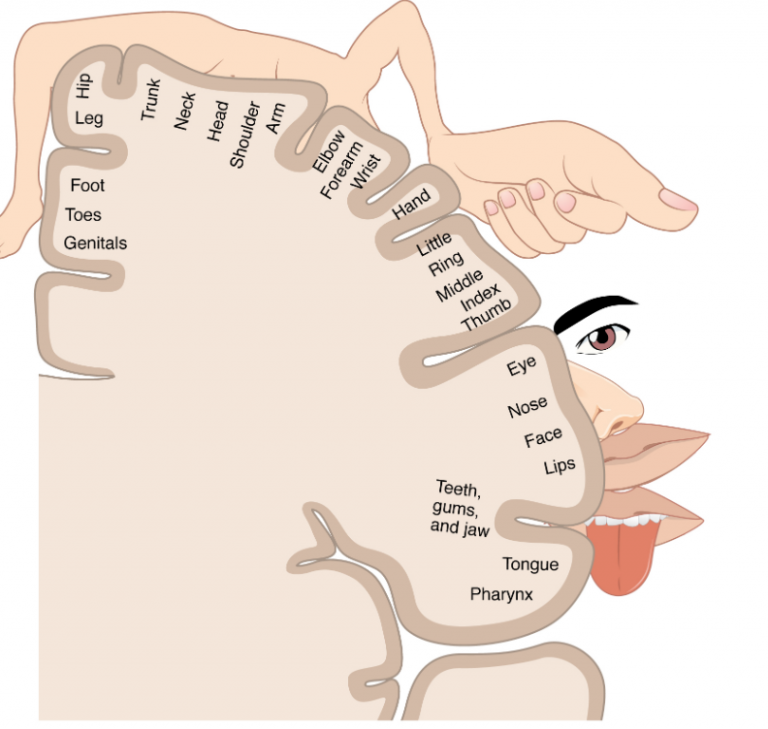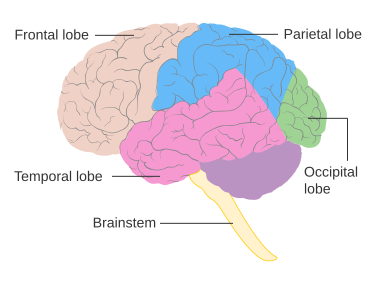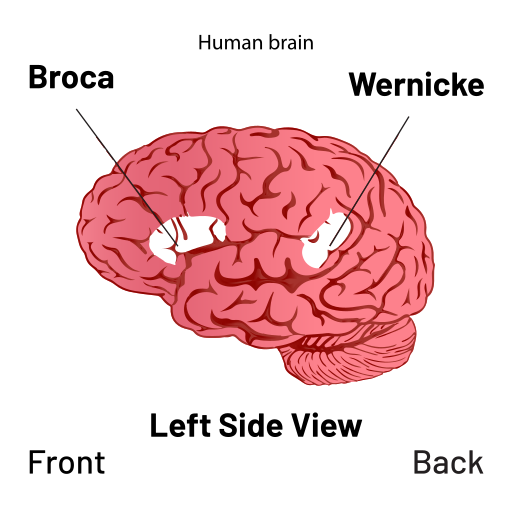IB Syllabus focus:
'- Understanding brain regions and their specific functions
- Historical perspectives on localization
- Modern views and controversies'
Localisation of function refers to the concept that specific functions are associated with specific areas of the brain. This topic will explore the understanding of brain regions and their respective functions, delve into historical perspectives, and discuss modern views and controversies regarding localisation.
Understanding Brain Regions and Their Specific Functions
Frontal Lobe
Function: Responsible for higher cognitive functions such as decision making, problem-solving, and impulse control.
Specific Regions:
Pre-frontal Cortex: Involved in personality, decision making, and moderating social behaviour.
Motor Cortex: Controls voluntary movements.
Parietal Lobe
Function: Processes sensory information it receives from the external world, mainly spatial sense and navigation.
Specific Regions:
Somatosensory Cortex: Receives and processes sensory information from the body.

The sensory homunculus depicts how the primary somatosensory cortex (S1) allocates more cortical area to body parts with dense receptor input (e.g., hands, lips, tongue). It illustrates somatotopic localisation—an ordered map from medial (legs) to lateral (face). The figure includes a coronal view with exaggerated body parts; minor captioning about receptor density extends the syllabus but clarifies the principle. Source.
Temporal Lobe
Function: Involved in processing auditory information and is also important for the processing of semantics in both speech and vision.
Specific Regions:
Hippocampus: Essential for the formation of new memories.
Occipital Lobe
Function: It is primarily responsible for visual processing.
Specific Regions:
Primary Visual Cortex: Receives and processes visual information.
Cerebellum
Function: Coordinates voluntary movements such as posture, balance, coordination, and speech, resulting in smooth and balanced muscular activity.

This diagram shows the four major lobes of the human cerebral cortex—frontal, parietal, temporal, and occipital—highlighting the gross anatomical basis of localisation. Use it to situate the motor cortex (frontal) and somatosensory cortex (parietal), as well as the hippocampus (temporal) and primary visual cortex (occipital) referenced in the text. Minor anatomical details beyond the IB syllabus (e.g., specific sulci) may appear but are not required for assessment. Source.
For a deeper understanding of how different brain regions and their functions are interconnected, you may find this article on brain regions and functions informative.
Historical Perspectives on Localisation
Phrenology
Franz Gall (early 19th century)
Proposed that the brain is the organ of the mind, with different faculties localised in different areas.
Suggested that the shape of the skull could reveal an individual’s psychological attributes.
Limitations & Criticisms
Lack of empirical evidence.
The concept was misused and became associated with pseudoscientific and discriminatory practices.
Broca’s Area
Paul Broca (1861)
Found a connection between damage to a specific area of the left frontal lobe (Broca’s area) and impairments in language production.
This finding provided empirical evidence supporting the theory of localisation.
Implications
Broca’s work led to further research on localisation of language-related functions, leading to the discovery of Wernicke’s area, which is associated with understanding language.

Broca’s area (left inferior frontal gyrus) and Wernicke’s area (posterior superior temporal gyrus) are highlighted to illustrate the classical model of language localisation. These regions underpin speech production and comprehension, respectively, while contemporary research also emphasizes supporting networks. The schematic includes only essential labels aligned with the syllabus. Source.
IB Psychology Tutor Tip: Understanding localisation of function is crucial as it reveals how specific brain areas' damage can distinctly affect behaviour and cognitive abilities, highlighting the brain's complexity and interconnectedness.
Modern Views on Localisation
Neuroimaging Studies
Advancements in neuroimaging technologies like fMRI and PET scans have allowed for more precise observation of brain activities related to various functions.
Findings
Multiple Areas Engagement: Modern studies suggest that while specific areas are crucial for certain functions, multiple regions of the brain are often engaged simultaneously.
Network Model: Proposes that various brain regions work together in a network to process information and execute functions.
Modularity of Mind
Jerry Fodor (1983)
Proposed the modularity of mind theory, suggesting that the mind is composed of innate modular structures, each with its specific function.
Influences & Implications
Has influenced cognitive science and psychology, emphasising the role of innate structures in cognition.
Highlights the importance of individual cognitive modules working independently and in conjunction to execute complex tasks.
Controversies and Debates
Holism
Opposing theory to localisation, arguing that all parts of the brain are involved in processing thought and action.
Critics of Localisation
Suggest that isolating functions to specific regions oversimplifies brain processes and ignores the interconnectedness of brain regions.
Research
Shows that while some functions are localised, the holistic interaction of the brain regions is essential for complex cognitive activities.
Neuroplasticity and Localisation
The debate between neuroplasticity and localisation revolves around the adaptability of the brain and whether brain regions can take over functions from damaged areas.
Evidence
Cases of brain injury show that sometimes adjacent areas of the brain can adapt and compensate for lost functions, demonstrating the brain’s plasticity.
Impact
These findings challenge strict views on localisation and encourage a more integrated understanding of brain functions, considering both localisation and interconnectedness.
Mind-Brain Dichotomy
Dualism vs Monism
The debate between whether the mind and brain are separate entities (dualism) or the same (monism).
Implications
This dichotomy influences perspectives on localisation, questioning whether mental processes can be fully explained by brain functions and structures, or if the mind has non-physical properties that transcend brain activity.
IB Tutor Advice: For exams, focus on linking specific brain areas to their functions and real-life implications, using case studies to illustrate how localisation impacts cognition and behaviour effectively.
Ethical Considerations and Implications
Research Ethics
The study of brain function and localisation involves considerations regarding the ethical treatment of research subjects, especially when investigating brain abnormalities or damages.
The use of animals in research on brain localisation requires careful consideration of ethical implications, highlighted in this article on ethical considerations in animal studies.
Clinical Implications
The understanding of localisation of function has significant implications in clinical settings, influencing diagnostic processes and interventions for neurological and psychological disorders.
The advancement in the understanding of localisation contributes to the development of targeted interventions and treatments, enhancing the effectiveness of therapeutic approaches for various conditions.
Conclusion
The concept of localisation of function has evolved, with advancements in technology and research methodologies providing deeper insights into brain functions and structures. The debates and controversies surrounding localisation highlight the complexity of the brain and the ongoing quest to unravel the intricate relationships between different brain regions and their associated functions. The exploration of localisation not only enriches our understanding of human cognition but also paves the way for innovations in treating and managing neurological and psychological disorders.
FAQ
The localisation-holism debate impacts treatment approaches significantly. A localisation approach may favour interventions targeting specific brain regions, such as drug therapies or surgeries that focus on a damaged or dysfunctional area, believing that addressing the localised issue will alleviate the disorder. On the other hand, a holistic perspective may advocate for more comprehensive treatment approaches, addressing the interaction between different brain regions and considering the overall functioning and well-being of the individual. For instance, cognitive-behavioural therapies often address a range of cognitive functions and their interplay rather than focusing solely on a single dysfunctional area.
While damage leading to loss of function does provide compelling evidence for localisation of function, it isn’t conclusive in isolation. The brain operates as an integrated system, and damage in one area can disrupt the overall network and impede communication between different regions. Consequently, observed impairments might be due to disrupted interaction rather than loss of localised function per se. Moreover, instances of brain plasticity, where undamaged areas adapt to perform functions of the damaged region, demonstrate that while localisation exists, the adaptability and interconnectedness of the brain are equally paramount.
Lateralisation of brain function, the idea that some cognitive functions are primarily located in either the left or the right hemisphere of the brain, is inherently related to the principle of localisation of function. For example, in most right-handed individuals, language processing is predominantly localised in the left hemisphere, demonstrating lateralisation. This notion exemplifies localisation of function by illustrating how distinct cognitive processes are not only localised to specific regions but also predominantly to specific hemispheres, offering a more detailed perspective on how different brain areas are specialised for distinct cognitive functions.
The discovery of mirror neurons provides nuanced insights into the localisation of function. Mirror neurons are cells in the brain that fire both when an individual performs an action and when they observe another individual performing the same action, and they are predominantly found in the prefrontal cortex. This finding indicates a specialised, localised function, supporting the notion of localisation of function within the brain. These neurons have been linked to a variety of cognitive functions such as empathy, learning through imitation, and understanding intentions, underscoring the complexity and specificity of localised brain functions.
Indeed, the development of AI and neural networks has significantly influenced our understanding of localisation of function in the human brain. These artificial networks are often designed to mimic the structural and functional aspects of the human brain, highlighting the importance of specialised units (analogous to brain regions) for performing specific tasks. Studying how artificial systems process information has provided insights into how localisation and networking might occur in the brain, emphasising the balance between specialised functions and integrated information processing within interconnected networks, reflecting the principles of localisation and holism.
Practice Questions
The historical perspective on localisation, particularly Phrenology by Franz Gall, laid the foundational idea that specific brain areas are responsible for specific functions, although it lacked empirical evidence and was eventually discredited. However, Paul Broca’s discovery of Broca’s Area substantiated the localisation theory by empirically linking damage in a specific frontal lobe area to language production impairments. Broca’s work has been seminal, prompting extensive research, leading to discoveries like Wernicke’s area and fostering advancements in neuroimaging technologies. These technologies have refined the concept of localisation, revealing the intricate network of brain regions collaboratively responsible for various functions.
The debate between brain localisation and holism is pivotal in understanding brain functions. Localisation posits that specific brain regions execute specific functions, backed by substantial neuroimaging evidence and discoveries like Broca’s area. However, holism argues that isolating functions to specific regions oversimplifies intricate brain processes, emphasizing the integral role of interconnected brain regions in executing functions. Modern research resonates with both perspectives, advocating an integrative approach that acknowledges specific areas for primary processing but also recognises the interdependent network of brain regions essential for comprehensive cognitive activity.

